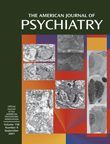Adaptive Functioning in Schizophrenia
To the Editor: In the article by Dawn I. Velligan, Ph.D., and colleagues (1), the surprising and counterintuitive finding of poorer outcomes in the patients in the active control group (versus the group with naturalistic follow-up and the group undergoing cognitive adaptation training) could be explained on the basis of bias by unblinded assessors who were also involved as clinicians in the interventions. It is otherwise difficult to understand how bringing posters and plants during home visits in the control treatment could have yielded a worsening in positive psychotic symptoms than in the less actively served follow-up group. Since no independent assessments of the nature of the social interactions with the control participants were reported, it is conceivable that their requests for direct assistance were rebuffed or referred to more distant and indifferent treatment teams and that these reactions by staff were experienced by the patients as rejections and antitherapeutic reactions.
It would be of interest to know what happened to the 15 subjects in the group undergoing cognitive adaptation training after the 9-month period of helpful home visits was completed—information that should be available, if only anecdotally, now more than a year after the study was completed. One would predict a regression to baseline levels of functioning and symptom profiles unless substantial training accompanied the therapists’ compensatory interventions in the homes of the patients. Regression to baseline levels of functioning and symptoms has been similarly found in programs such as Training in Community Living and the Program of Assertive Community Treatment, which emphasize support versus skills training.
1. Velligan DI, Bow-Thomas CC, Huntzinger C, Ritch J, Ledbetter N, Prihoda TJ, Miller AL: Randomized controlled trial of the use of compensatory strategies to enhance adaptive functioning in outpatients with schizophrenia. Am J Psychiatry 2000; 157:1317-1323Google Scholar



